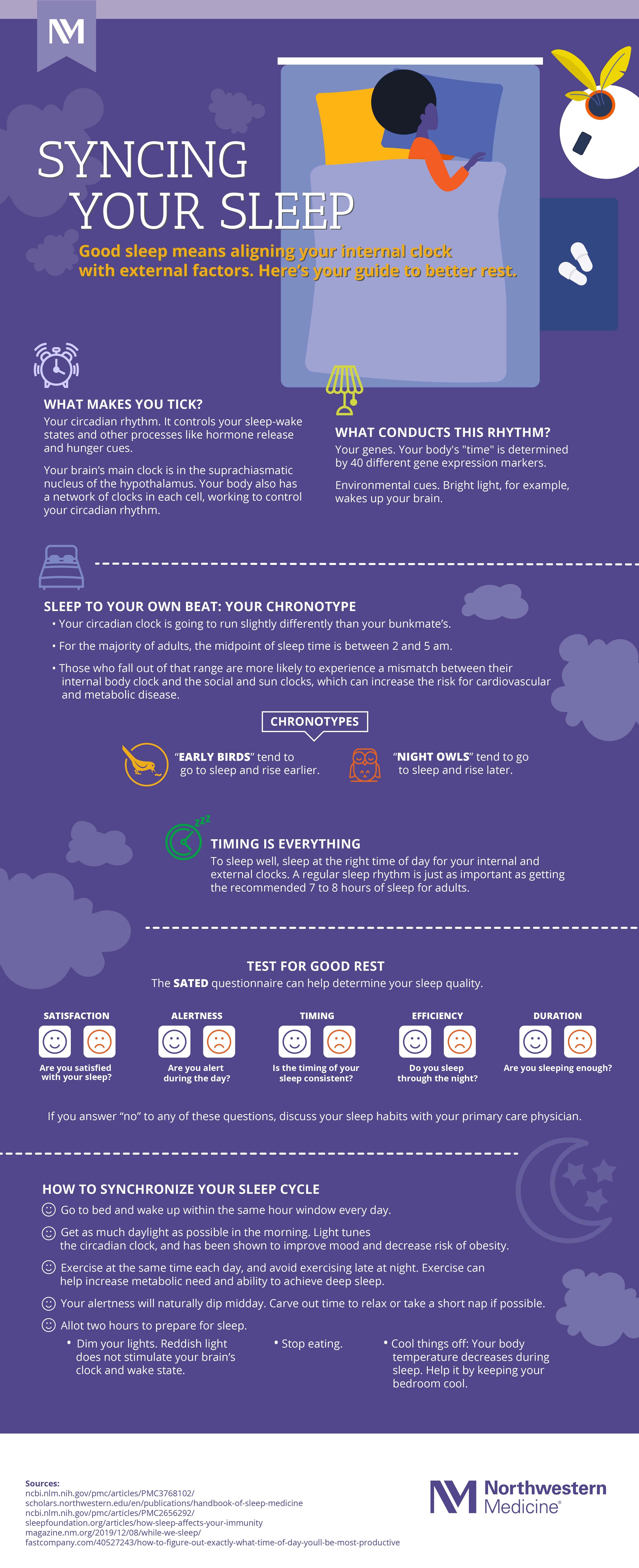What Is Good Sleep? (Infographic)
Syncing Your Circadian Rhythm
Published February 2021
What do you really mean when you tell someone to "sleep well"? Good sleep is hard to define, and you tend to only notice when you sleep poorly.
"Sleep is a pillar of health," says Phyllis C. Zee, MD, PhD, chief of Sleep Medicine in the Department of Neurology at Northwestern Medicine. "It's just as important as nutrition and exercise. It impacts everything."
During sleep, your brain processes and stores memories, and your body repairs tissues and builds up antibodies to fight infections and inflammation. Your body's ability to do these tasks affects your mood and brain function. In other words, if you do not sleep well, your state of mind and cognitive ability can suffer.
Bad sleep can harm your metabolism, too, causing weight gain and raising the risk of diabetes. Sleep troubles are also linked with a higher chance of other health problems, ranging from digestive diseases, to heart and lung conditions, to nervous system and mental health disorders. And, if you already have these conditions, poor sleep can make them worse.
Sleep is a pillar of health.— Phyllis C. Zee, MD, PhD
Good sleep means feeling fully awake and alert during the day. To get there, you will need to do more than just clock extra hours in bed. Good sleep also means aligning your body's circadian rhythm with the 24-hour cycle of each day.

Download What Is Good Sleep? (Infographic)






